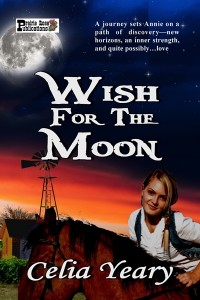Celia Yeary is a native Texan. In fact, her roots go all the way back to the Republic of Texas. She married a Texan, graduated from college in Texas, and raised her children in the Texas Hill Country, where she and her husband have resided for forty years.
No wonder her stories set in the Lone Star State brim with undeniable authenticity.
What was the title of the first piece of fiction you wrote? What was it about? Was it published?


This came about because I had a couple of minor physical injuries and could not play golf. On a very old laptop, I learned how to make a document and began typing, thinking I was practicing writing on a computer instead of a typewriter. Texas Blue appeared on the screen.
It is the story of a sweet young girl who was raped by her father’s friend...a circuit judge...and when she became pregnant, her father blamed it on her and banished her deep into the East Texas Piney Woods...alone at first, and then with her sweet baby girl.
I submitted it to a new publisher who stood out during my research of small e-presses. I loved the covers—big thing with me—and that they did not publish porn or erotica. I chose them.
This was fine at first, but the editor believed she’d made a mistake by allowing a contract about rape. It’s a long story, but I would not allow the changes to make my story different.
I learned a valuable lesson: If you love your own book, do not allow any editor or publisher to change it against your will. However, I pretty much shot myself in the foot because they only took one more novel—All My Hopes and Dreams—and then I had to move on.
Do you write by the seat of your pants, or plot things out?
I suppose by the seat of my pants. If I took time to plot out the story, I’d waste precious time and in the end, maybe not have the story I really wanted. So, instead, I just begin writing and see where the story takes me.
Do you write full-time, or do you have a day job? If you have a day job, what do you do? If you’re retired, what did you do before?
Oh, I am retired and love it. Before? Besides being a mommy and a wife, I taught high school students biology, and physiology and anatomy in a private military boarding school. This is the best job anywhere. I enjoyed high school students—they are endlessly entertaining and I often said they were the most interesting people I knew—and now I’m connecting with quite a few on Facebook and they get to call me Celia. Except, not all will. Some, male and female, insist it would just be wrong to say anything but Mrs. Yeary. Bless their sweet little hearts.
What was the most difficult thing you’ve ever written? Why?
 Wish for the Moon, set in 1901. I’ve learned this time period is a bit like No-Man’s-Land—somewhere between historical and contemporary. The setting is rural North Texas, and even in 1901, farm people lived much like their ancestors: outhouses, wood cook stoves, kerosene lanterns, and a well for water.
Wish for the Moon, set in 1901. I’ve learned this time period is a bit like No-Man’s-Land—somewhere between historical and contemporary. The setting is rural North Texas, and even in 1901, farm people lived much like their ancestors: outhouses, wood cook stoves, kerosene lanterns, and a well for water.
In addition, the heroine is sixteen at the beginning of the story. It’s difficult to call it a romance, because it more resembles a “coming-of-age” story. Since she’s nineteen at the end, I do call it a romance.
I love this story, the “book of my heart.” But when we write from our hearts, we are more sensitive and vulnerable to any kind of criticism. I”ve been lucky, though, because readers do enjoy the story.
One of the characters is an old blind man. I stepped lightly around this part, wanting readers to love Old Blind Jerral without feeling sorry for him. He is patterned after my own Uncle Brother, my daddy’s older brother, blinded at age 19.
What’s the worst piece of advice you ever received?
I was a bit chastised when another author criticized my romances. Her admonition was, “I wouldn’t write anything my young grandsons would not be allowed to read, and you shouldn’t either.”
I replied, “I make certain I don’t write stories for children.”
Find out more about Celia and her stories on her website, CeliaYeary.com.

